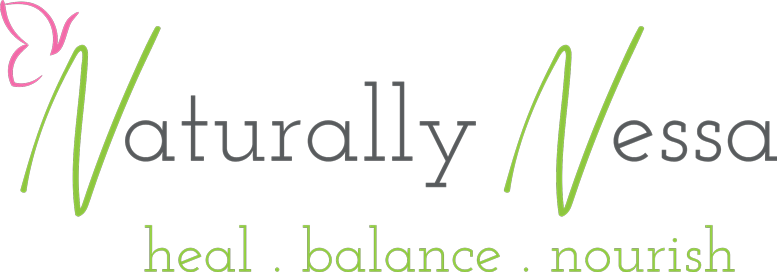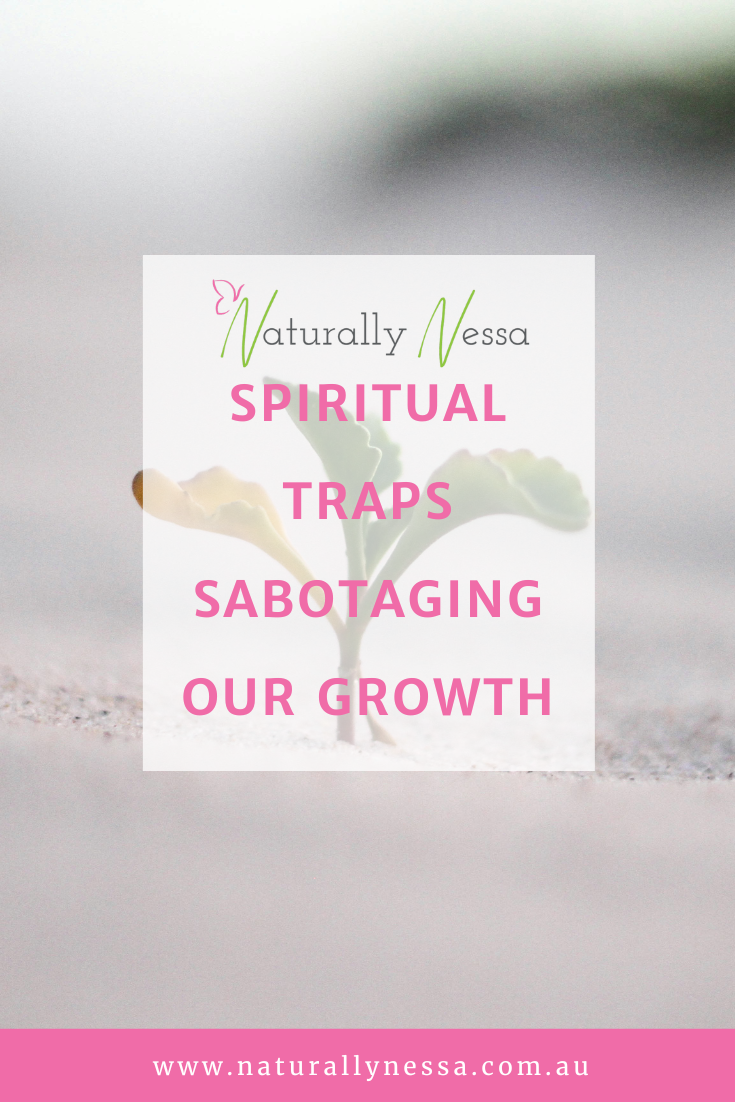Spiritual Traps Sabotaging Our Growth
As we progressively advance on our spiritual awakening paths, our Soul essence begins to blossom like a luminous flower deep in our hearts.
The more we clear away the dead, gnarled, and overgrown beliefs, perspectives, and emotional baggage within us, the more clearly we feel our divine essence or true nature.
However, like any garden, our metaphorical inner landscapes can be consumed by weeds, pests, and forms of pollution that strangle anything beautiful we have been nurturing.
We all have a shadow self. Learn how to befriend your shadows, through the power of mindful shadow work, so that you can reclaim the joy and healing that is your birthright!
Sometimes, we can even sabotage the growth blossoming within us (without being aware!).
Snares, ambushes, and traps exist in all areas of life, and they keep us both stuck and also unable to tend to the garden of our lives.
This isn’t a journey about becoming something. This is about unbecoming who we are not.
The problem with the spiritual journey, is that it is often laden with traps of many kinds. These traps, or ego defense mechanisms, are not just physical, but often also mental.
As we process life primarily through the mind, we also tend to approach spirituality with the mind.
The issue with this mind-centered approach, is that spirituality cannot be contained by the limitations of thought. Once spirituality is captured within a thought, it ceases to maintain its true essence and, instead, becomes a constricting belief.
In other words, spirituality loses its alive, ever-flowing essence once it is compartmentalized within the mind.
The more we use the mind to approach our Soul, the further away our Soul feels.
But the moment we drop our thoughts, connect with the heart, and allow ourselves to purely feel our Soul, suddenly we feel at home once again.
It’s difficult for us, as mind-oriented beings, to become conscious of our thoughts, as we have been conditioned to identify with them since a young age. But once we slowly learn how to become the observer, and observe our thoughts and how they tend to sabotage our happiness, we experience true spiritual growth.
I have put together a list of the most common traps that we can fall into on the spiritual path. How many of these traps can you identify with?
Spiritual Bypassing
Spiritual bypassing is the practice of using spirituality to avoid, suppress, or escape from certain emotions or situations in life. Common types of spiritual bypassing include:
Numbing one’s emotions through repression and avoidance
Unhealthy obsession and attachment to the positive (e.g. positive thinking), and adopting a passive-aggressive “nice” mask
Debilitating judgment about one’s shadow self
Weak personal boundaries
Getting stuck in theoretical spirituality and dogmatic beliefs about “truth”
Denial of self-responsibility by placing it on another higher being (e.g., spirit guide, angel, ascended master)
Using spiritual practices to escape unpleasant emotions (e.g. using meditation to dissociate from emotions, rather than transmute them)
Waking Up Others
Once we have awoken out of the ‘matrix’, it’s common for us to desperately want our loved ones and fellow peers to awaken. We can see how much pain and delusion other people are in, and you have an intense desire to ‘show them the truth’.
Even though we have good intentions, our desire to ‘save’ others causes them to backlash in ways that infuriate both them and us.
Eventually, trying to force others to wake up ends up harming both ourselves and others. Not only that but this trap generates a lot of anger and misunderstanding, which results in further ego ensnarement, sabotaging our spiritual growth.
But, sometimes, developing an expanded spiritual perspective gives the ego an opportunity to feel more ‘knowledgeable’ than others still trapped in illusion. When unsolicited advice is given to others, the results can be disastrous.
Let people wake up when they are ready.
Avoiding Everyday Responsibilities
Some people get so infatuated with the spiritual path that they avoid dealing with ordinary, everyday affairs. This form of escapism can lead to leeching off others, not paying bills, evading taxes, obsessing with ‘living off the grid’, etc.
When avoiding everyday responsibilities is worn as a badge of being consciously elevated or ‘more spiritual’, this too is a form of egotism in disguise.
Avoiding ordinary responsibilities, which are not perceived as being ‘spiritual enough’, can also be a form of distraction that the ego uses to limit spiritual growth. The more concerned and obsessed you are with living an outwardly ‘spiritual’-looking life, the more distanced from your inner work you become.
We need to be humble and recognise that ordinary daily life is the perfect place to spiritually grow and mature.
Attachment
After experiencing profound and expansive mystical experiences, which often come after significant spiritual growth, it is common for us to attach to the experience.
It can be painful to come down from these experiences and return back to usual, ‘unenlightened’ reality.
We then can also attach to our ‘stories’ and beliefs about spirituality. In other words, because the mind tries to make sense out of this transcendent experience, it will often latch onto various ideas as a form of control.
But, the more we attach to our beliefs, stories, desires, and mental interpretations, the more we suffer. We forget that everything passes, even transcendent experiences. Enlightenment isn’t a destination, it is a complete surrender; a fundamental shift in the way we approach life.
Attachment is perhaps the most common trap that sabotages our spiritual growth.
On one hand, attachment to ideas helps us to grow but, ultimately, those ideas that we are unwilling to let go of end up stagnating our growth.
We need to realise that freedom cannot be experienced through the mind. Freedom is felt when we can be liberated from attachment to our thoughts and separate sense of self.
Relying on External Answers
As we progress through our spiritual paths, it is normal and beneficial for us to seek out external support. Reading books, attending workshops and seminars, going to retreats, and practicing holistic techniques all help us experience spiritual growth.
However, after a while, it is common for us to become too dependent on external answers for our freedom and happiness. This pitfall can be seen in many spiritual seeker’s obsession and glorification of their gurus (in other words, projecting and disowning their divinity onto another).
Eventually, as we become accustomed to constantly searching outside of ourselves for answers, we forget the presence of our own Souls. We forget that our ultimate source of guidance and wisdom comes from within us and, instead, we keep chasing things outside of ourselves that we believe will ‘enlighten’ us.
We need to stop, pause, and reflect on our spiritual journeys. Are we seeking out first-hand experience or second-hand experience, given to us by others?
Don’t forget to look within for your answers as well because it is by connecting with your Soul that you will ultimately experience freedom.
Be Honest With Yourself
In order to see through and extricate ourselves from these spiritual traps, we need to be radically honest with ourselves.
We need to be willing to see whereabouts we have indeed gone astray and have fed into the ego. We will also immensely benefit from exploring our shadow self, and exploring our mistaken beliefs during this process.
Don’t worry if you have fallen into any of these spiritual traps. We all become ensnared by the ego.
It can be particularly difficult for us to see clearly when the ego ‘spiritualizes’ certain beliefs and ideas. The more open, humble, and honest you are, the more you will be able to see through these tricks and liberate yourself.
Finally, don’t be afraid of the dark. Don’t be afraid of being wrong. Everything, no matter how painful, is a learning opportunity. At the end of the day, your Soul contains everything you have been searching for.
PIN FOR LATER:


